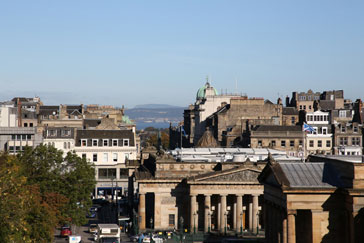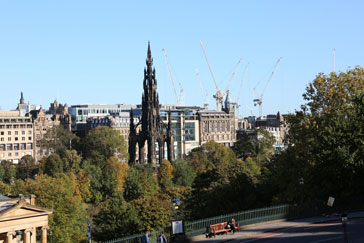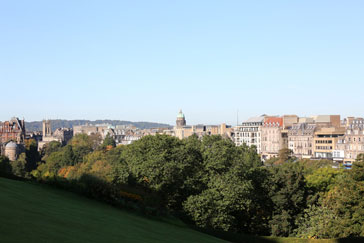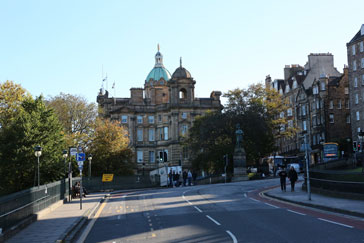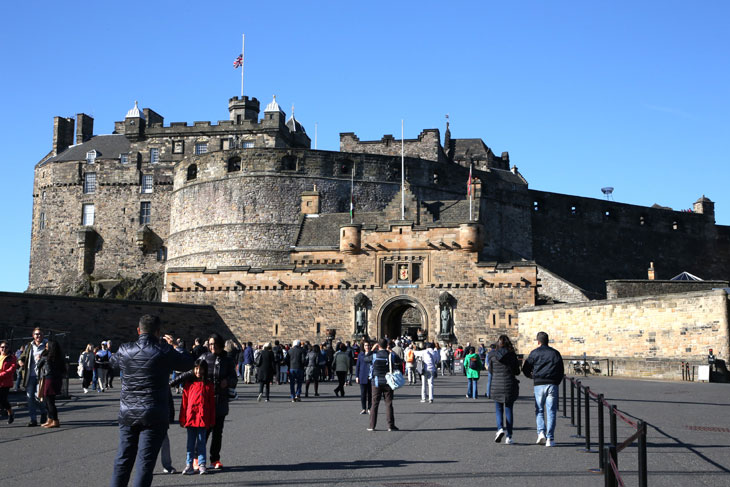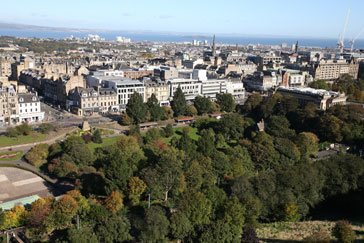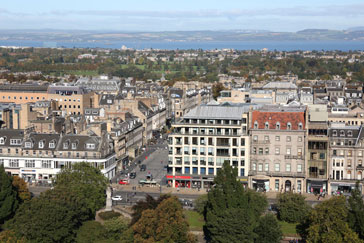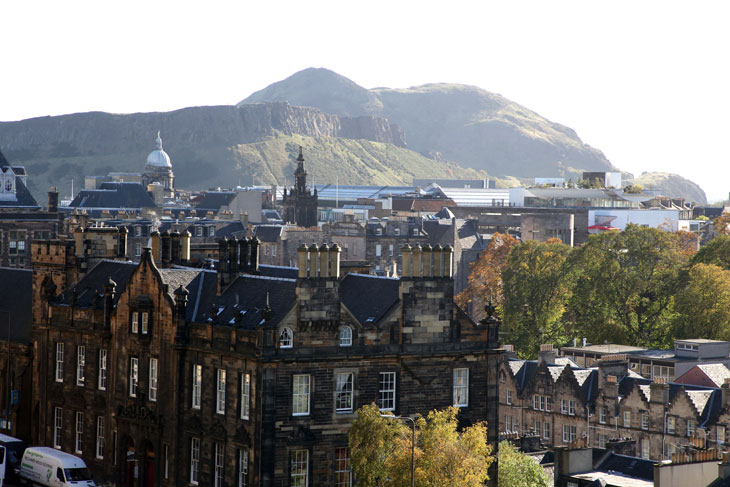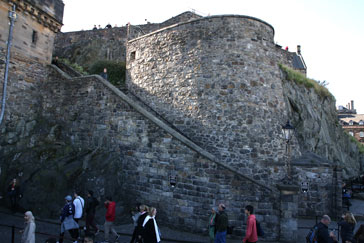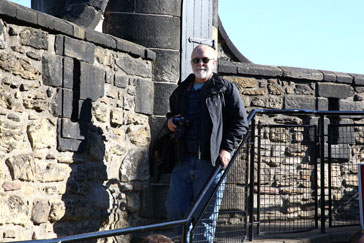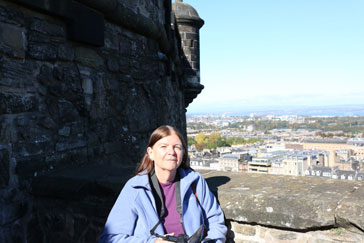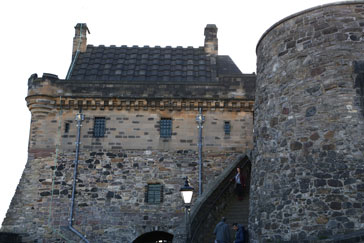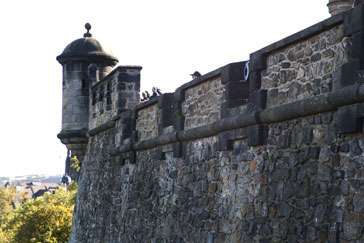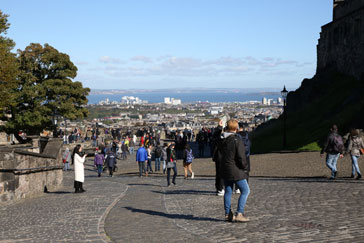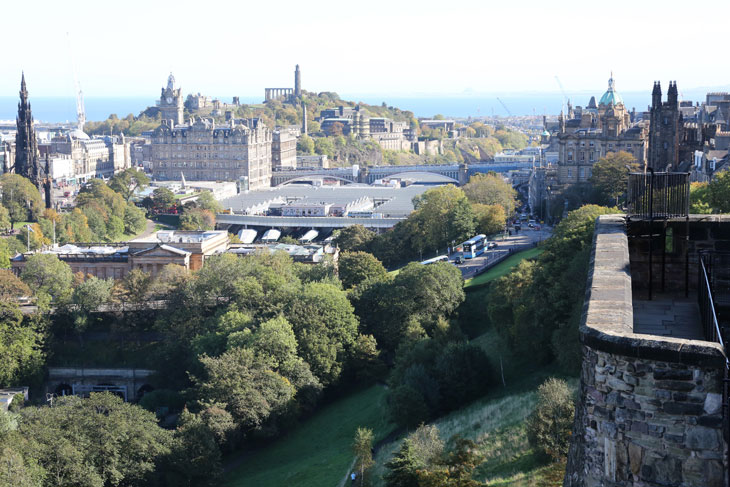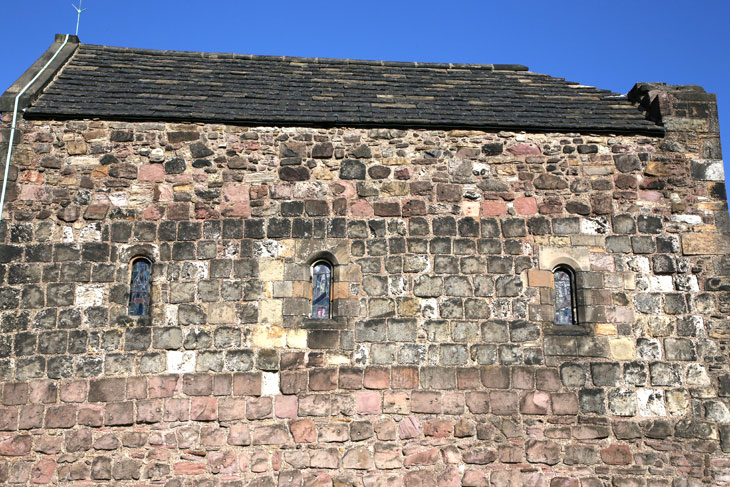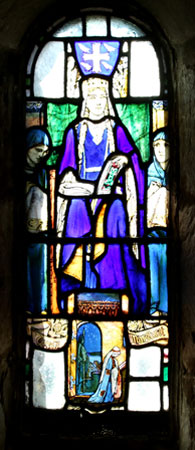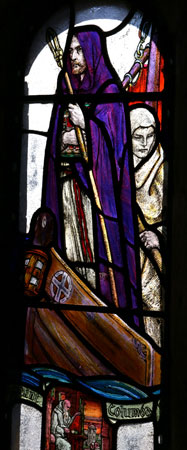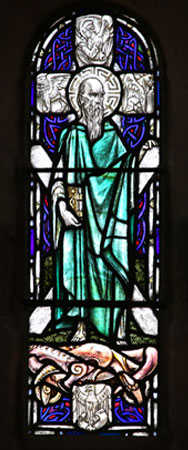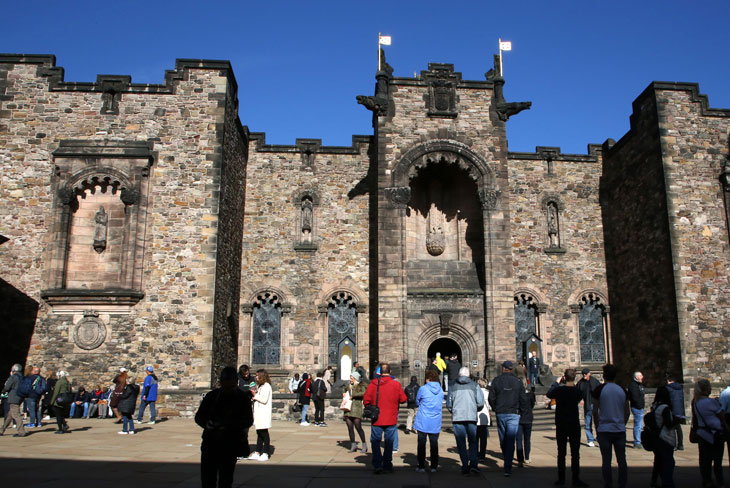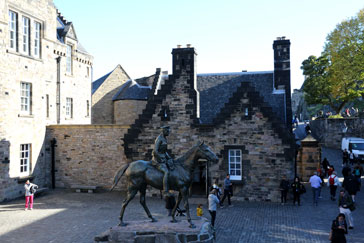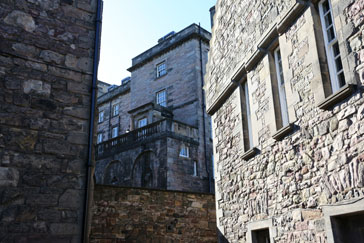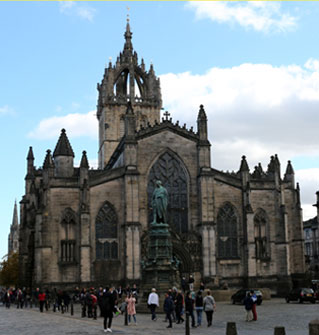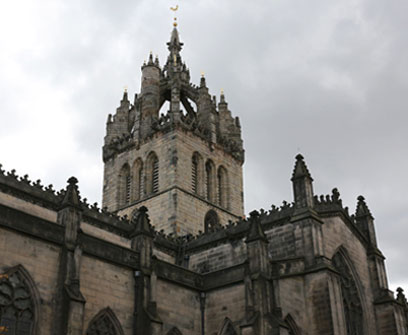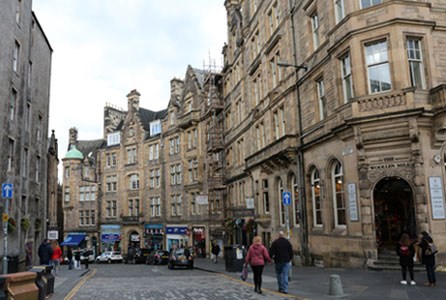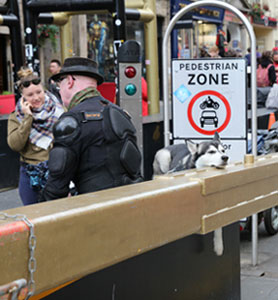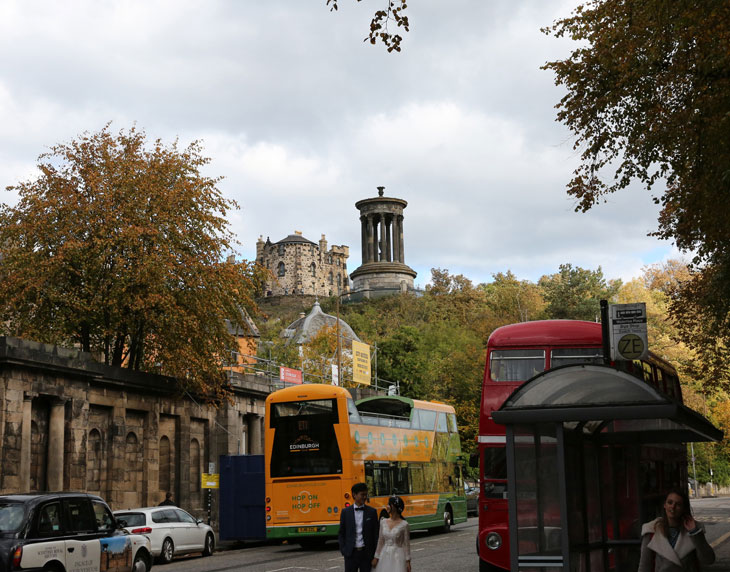Edinburgh Castle and Old Town
The next morning we set off to explore Edinburgh Castle and Old Town. We plotted a course
across the grassy divide using Google maps which insisted that the route was mostly flat
although it was obvious that the climb would be rather steep.
A royal castle has stood on this site since at least the 12th Century, and since that time,
the castle has endured at least 26 sieges. After the 17th Century it was used mainly as a
military barrackes rather than a royal residence, and there are still some military offices
within the castle walls.
The view from the castle was amazing. The mountain in the picture on the second row is called
Arthur's Seat.
We enjoyed climbing the walls and looking out at the city.
This is the view from the castle walls looking back towards the train station (just in front of
the bridge). You can also see the Walter Scott Memorial and the Scottish National Gallery.
The oldest building in Edinburgh, St. Margaret's Chapel, is inside the castle walls. Margaret
was a member of the English royal family who fled to Scotland to escape the Norman invasion and
later married Malcolm III of Scotland. The chapel was probably built during the reign of her son
David I around 1130, but the lovely stained glass windows are more recent. Because of her many
acts of charity, Margaret was canonized by Pope Innocent IV in 1250.
This building houses the Scottish National War Memorial.
The National War Museum is also on the castle grounds.
After visiting the castle, we wandered out onto the streets of Old Town. The building with
the interesting steeple is St. Giles Cathedral, a focal point of the Scottish Reformation and
the 'Cradle of Presbyterianism'.
We continued wandering down the street known as "The Royal Mile", but the shops between the
historic buildings were mostly of the tacky tourist variety so it was a bit disappointing.
Eventually we wandered back over to New Town. We had booked a tour of Hadrian's Wall the next day,
so we wanted to locate the bus stop. For some reason, a bride and groom were posing for pictures
in the busy street. Behind them is Calton Hill which is topped by various monuments, including an
unfinished one resembing the acropolis. Its construction began in 1822, and it was meant to honor
those who died in the Napoleonic Wars. It was left unfinished because funding ran out, but since
people have become so fond of its unfinished form, it has never been completed.
